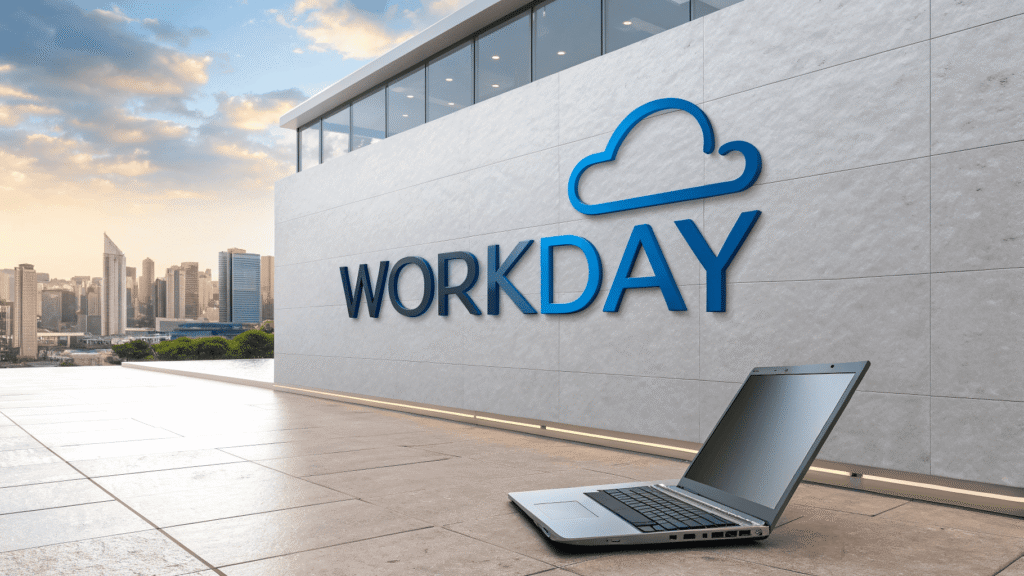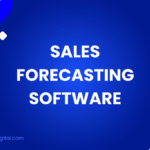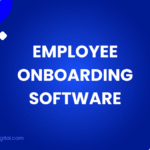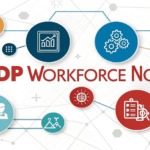
Enterprise software has evolved dramatically over the past decade. Gone are the days when businesses relied on clunky, on-premise systems Workday that required extensive IT support and costly maintenance. Cloud-based solutions now dominate the enterprise landscape, offering scalability, flexibility, and real-time insights that traditional systems simply cannot match.
Among the leaders in this space stands Workday, a comprehensive cloud platform that has revolutionised how large organisations manage their most critical business functions. From human resources and payroll to financial planning and analytics, Workday provides an integrated suite of applications designed specifically for the modern enterprise.
This guide explores everything you need to know about Workday’s enterprise cloud software, including its core features, benefits, and why thousands of organisations worldwide have made the switch to this powerful platform.
What is Workday?
Workday is a cloud-based enterprise software company that specialises in human capital management (HCM) and financial management applications. Founded in 2005 by former PeopleSoft executives, the company has grown to serve over 10,000 organisations across more than 180 countries.
The platform operates entirely in the cloud, which means businesses can access their critical HR, finance, and planning data from anywhere with an internet connection. Unlike traditional enterprise software that requires on-site servers and extensive IT infrastructure, Workday handles all the technical heavy lifting, allowing organisations to focus on their core business objectives.
What sets Workday apart from competitors is its unified approach to enterprise software. Rather than cobbling together separate systems for different functions, Workday provides a single platform that connects HR, finance, and planning data seamlessly.
Core Workday Applications
Human Capital Management (HCM)
Workday’s HCM suite covers the entire employee lifecycle, from recruitment to retirement. The platform includes modules for talent acquisition, onboarding, performance management, learning and development, and compensation planning.
The system’s strength lies in its ability to provide managers and HR professionals with real-time insights into workforce trends. For example, predictive analytics can identify employees who might be at risk of leaving, allowing proactive retention efforts.
Key HCM features include:
- Global payroll management across multiple countries and currencies
- Advanced reporting and analytics for workforce planning
- Mobile-first design that works seamlessly on any device
- Integration with third-party recruiting platforms and job boards
Financial Management
The financial management application transforms how organisations handle accounting, procurement, and financial reporting. Built on a modern cloud architecture, it eliminates many of the bottlenecks associated with traditional ERP systems.
Financial teams can close books faster, generate reports in real-time, and gain deeper visibility into spending patterns across the organisation. The system also supports multiple accounting standards, making it suitable for global enterprises with complex regulatory requirements.
Notable financial management capabilities include:
- Automated invoice processing and approval workflows
- Real-time financial consolidation across subsidiaries
- Advanced expense management with mobile receipt capture
- Comprehensive audit trails for compliance purposes
Planning and Analytics
Workday’s planning solution enables organisations to create budgets, forecasts, and strategic plans with unprecedented speed and accuracy. The platform combines financial and workforce data to provide a holistic view of organisational performance.
Planning teams can model different scenarios, track progress against goals, and adjust strategies based on real-time data. The system’s collaborative features also make it easier for multiple departments to contribute to the planning process.
Why Choose Workday for Enterprise Operations?
Unified Data Model
One of Workday’s most significant advantages is its unified data model. Traditional enterprise systems often store information in silos, making it difficult to get a complete picture of organisational performance. Workday eliminates these silos by storing all data in a single, integrated system.
This approach enables powerful cross-functional reporting. For instance, finance teams can easily access workforce data to understand the impact of hiring decisions on budget forecasts. Similarly, HR professionals can analyse compensation trends alongside financial performance metrics.
Scalability and Flexibility
Cloud-based architecture makes Workday inherently scalable. As organisations grow or change, they can easily add new users, modules, or functionality without the need for additional hardware or extensive system reconfigurations.
The platform also supports complex organisational structures, including matrix reporting relationships, multiple legal entities, and global operations with different currencies and languages.
User Experience
Workday places significant emphasis on user experience, with an interface that resembles consumer applications rather than traditional enterprise software. This approach reduces training time and increases user adoption rates.
The platform’s mobile capabilities are particularly noteworthy. Employees can access pay slips, submit expenses, request time off, and complete other routine tasks from their smartphones or tablets.
Security and Compliance
Security is paramount for any enterprise software system, and Workday takes a comprehensive approach to protecting sensitive data. The platform includes features such as role-based access controls, data encryption, and regular security audits.
For organisations in regulated industries, Workday provides extensive compliance capabilities. The system can generate reports required by various regulatory bodies and maintains detailed audit trails for all transactions.
Implementation Considerations
Timeline and Resources
Implementing Workday typically takes 6-18 months, depending on the size and complexity of the organisation. The process involves data migration, system configuration, user training, and extensive testing.
Successful implementations require significant commitment from both technical and business teams. Organisations should plan for dedicated project resources and expect some temporary disruption to normal operations during the transition period.
Change Management
Moving to Workday often represents a significant change in how employees interact with HR and finance systems. Effective change management is crucial for ensuring user adoption and realising the full benefits of the platform.
This includes comprehensive training programmes, clear communication about the benefits of the new system, and ongoing support during the transition period.
Integration Requirements
Most organisations need to integrate Workday with other business systems such as payroll providers, benefits administrators, or specialised industry applications. Workday provides various integration tools and APIs to facilitate these connections.
Planning for integrations should begin early in the implementation process, as they can significantly impact project timelines and complexity.
Maximising Your Workday Investment
Implementing Workday is just the beginning. To maximise return on investment, organisations should focus on leveraging the platform’s advanced capabilities such as predictive analytics, automated workflows, and self-service features.
Regular training and system updates ensure that users stay current with new features and best practices. Many organisations also benefit from working with Workday-certified consultants who can provide ongoing optimisation and strategic guidance.
Consider establishing a centre of excellence within your organisation to champion Workday adoption, share best practices, and identify opportunities for further improvement.
The enterprise software landscape continues to evolve rapidly, but Workday has established itself as a reliable partner for organisations seeking to modernise their HR, finance, and planning operations. By providing a unified, cloud-based platform with strong user experience and robust functionality, Workday enables businesses to operate more efficiently and make better data-driven decisions.

I am Ray Jones Digital
My current occupations: a Digital Marketer, Local SEO expert, Link Builder, and WordPress SEO specialist. Shopify SEO, Ecommerce Store Management, and HTML & WordPress Developer I have been practicing the above mentioned services for more than 10 years now As an SEO expert working with your ongoing projects.



